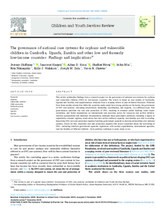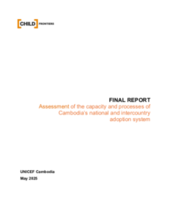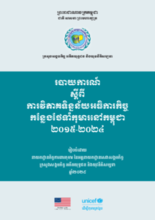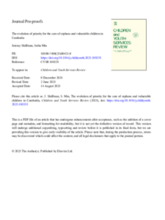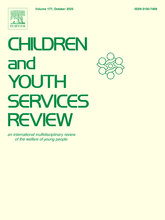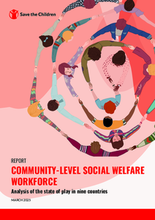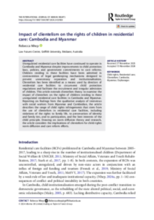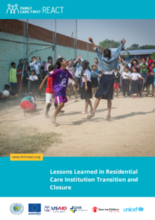This country page features an interactive, icon-based data dashboard providing a national-level overview of the status of children’s care and care reform efforts (a “Country Care Snapshot”), along with a list of resources and organizations in the country.
demographic_data
childrens_living_arrangement
children_living_without_bio
social_work_force
key_stakeholders
Key Stakeholders
Add New DataOther Relevant Reforms
Add New Datadrivers_of_institutionalisation
Drivers of Institutionaliziation
Add New Datakey_research_and_information
Key Data Sources
Add New DataMapping of residential care facilities in the capital and 24 provinces of the kingdom of Cambodia
National estimation of children in residential care institutions in Cambodia: A modelling study
Prevalence and number of children living in institutional care: global, regional, and country estimates
Shaping the national social protection strategy in Cambodia: Global influence and national ownership
Towards a Social Protection Strategy for the Poor and Vulnerable: Outcomes of the consultation process
Country Care Profile: Cambodia
Acknowledgements
Data for this country care snapshot was contributed by partners at Family Care First and UNICEF Cambodia.
Displaying 1 - 10 of 285
This article examines how national care systems for orphans and vulnerable children in Cambodia, Uganda, and Zambia are governed, drawing on case studies and a review of existing research. It highlights the gap between strong policy commitments and weak on-the-ground implementation, pointing to historical, political, and capacity-related factors that hinder effective care and protection.
This report presents an independent assessment of Cambodia’s national and intercountry adoption systems, with a focus on the country’s progress in aligning adoption practices with international standards for child protection and family-based alternative care. Commissioned by UNICEF Cambodia in collaboration with the Ministry of Social Affairs, Veterans, and Youth Rehabilitation, the assessment evaluates the current capacity, processes, and legal frameworks governing adoption, and provides recommendations to strengthen the system in the context of Cambodia’s ongoing care reform agenda.
This Wall Street Journal article recounts the unraveling of Sovann Komar (“Golden Children”), a Cambodian orphanage founded in 2003 by Elizabeth Ross Johnson, heir to the Johnson & Johnson fortune, and her local collaborator Sothea Arun.
The article presents an in‑depth interview with the organisation This Life Cambodia, which works at the grassroots level in Cambodia to empower local communities around issues of social justice. It explores how community‑driven family‑strengthening approaches are applied in contexts of complex vulnerability, emphasising the importance of locally led support networks, culturally appropriate practices, and the agency of caregivers in sustaining positive family and community outcomes.
This report provides an in-depth analysis of trends and progress in reducing the number of residential care facilities in Cambodia and the children placed in them between 2015–2024.
This article traces the evolution of Cambodia’s system for caring for orphans and vulnerable children (OVC), shaped by political stabilization, emerging child protection concerns, international advocacy, and gradual state engagement. While Cambodia now has a solid policy framework, weak government prioritization, poor interagency coordination, and limited local capacity hinder implementation, leaving proponents to push for broader political commitment, balanced international support, and stronger responses to root causes such as poverty and migration.
This special issue of the Children and Youth Services Review concerns the governance of children's care systems in low and middle-income countries, with a focus on Cambodia, Uganda and Zambia. The special issue focuses on the political and bureaucratic factors that shape priority for and the effectiveness of national children's care systems in low and middle-income countries.
This report, based on a study across nine countries, examines how to strengthen the community-level social welfare workforce (CLSWW) as a vital but under-resourced part of national child protection systems. It calls for context-specific strategies that clearly define roles and competencies, build capacity, and align with local norms, mechanisms, and resources to enhance child protection outcomes.
The objective of this study is to document lessons learned from Family Care First (FCF) | Responsive and Effective Child Welfare System Transformation (REACT) members in Cambodia, as well as the literature from others working on transition globally, to create evidence-based recommendations to inform future transitions and closure of residential care institutions in Cambodia at scale.

